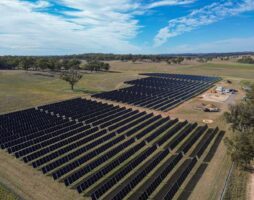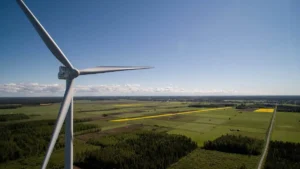Over time, I have felt my share of despair and anger as sensible policy has been blocked, reversed and abused. I have been frustrated as I have seen exciting technological and social developments squashed, and abuse of power run rampant. A few issues have caused me serious distress…

So we don’t have to waste even more time debating our energy future, I thought it might be useful if I listed a few things we really know about energy.
1. Leave it in the ground
Two-thirds of global greenhouse gas emissions and three-quarters of Australia’s emissions result from fossil fuel extraction and burning. Most of the world’s existing ‘profitable’ fossil fuel reserves must be left in the ground to avoid dangerous climate change. Spending money on exploration and building extra fossil fuel supply capacity is money down the drain.
2. We know it creates more jobs
An energy-efficient renewable energy future creates more jobs than conventional energy, because most of the new jobs are in light manufacturing and services sectors, which are much more employment-intensive and much less capital-intensive than traditional energy supply industries. We have known this for decades.
3. And it’s cheaper
An energy-efficient, renewable energy future will be cheaper than a ‘conventional’ energy future, even if we don’t introduce a carbon price. Much of our existing energy supply infrastructure will have to be replaced over the next few decades anyway, so comparison of the cost of a clean energy future with
existing energy costs is invalid—the real choice is between different investments, and should include a science-based carbon price.
A lot of energy efficiency potential is profitable (the ‘lunch you are paid to eat’ as pointed out by Amory Lovins decades ago). While renewable energy has been expensive in the past, costs are declining rapidly (and performance is improving), and it already seems to be cheaper or similar in cost to building new traditional energy plants.
Interestingly, a clean energy future will also be mostly privatised—in a democratic way.
4. Plus more reliable and resilient
A well-designed, efficient renewable energy system should be more reliable and resilient than a centralised system, as local energy storage, smart management and generation reduce reliance on networks (where most disruptions occur) and transmission lines.
Debate about supply of base load power can only be described as outdated and misinformed.
5. Developing countries benefit too
An efficient, clean energy future offers many developing countries multiple benefits including lower energy import costs, better services to the rural poor and lower pollution.
6. Transport is not just about EVs
Transport is a very challenging energy problem, not because it can’t be fixed, but because very few countries and cities even understand the fundamental problems. A car-based society is not practical, equitable or economic. Electric cars are only a small part of the solution. Virtual service delivery and workplaces, coordinated planning, comprehensive public transport, low-speed electric vehicles (with suitable infrastructure, speed limits and rules to ensure safety for all, including pedestrians), and better-organised walkable cities are needed.
7. Fly lower and less
Air travel is a much bigger climate problem than most people realise. The overall warming effect of air travel is two to five times the value calculated using Kyoto carbon accounting. And most of this impact is due to the release of emissions at high altitude, not CO2—so switching to renewable aircraft fuel
doesn’t fix the problem. Flying lower and less, and transitioning to electric aircraft, will be necessary.
8. New buildings remain a problem
We are constructing buildings and urban infrastructure that will be future liabilities, not assets. And we are not providing the necessary infrastructure to support a successful economy and equitable, enjoyable lifestyles. The failures are deep and systemic. I really don’t know how we fix this one.
9. Add monitoring to appliances
Our appliances and equipment are ‘dumb’, as well as inefficient. They must all have built-in real-time monitoring, benchmarking and feedback systems so faults are detected, operation is optimised and inefficient products are exposed.
10.Skills currently in short supply
We have very limited numbers of designers, tradespeople, professionals and customers who are competent to deliver energy-efficient low-carbon solutions. We have poor supply chains to deliver what is needed. Training capacity is limited and certification weak. We have few incentives and many disincentives regarding sensible decision-making and action.
Overall, it’s a miracle we have progressed as far as we have! Based on our track record, it will also be a miracle if humanity gets out of the hole we’ve dug without a lot of pain, misery and conflict. But we have the tools and some smart people. The problems are our leadership, short-sightedness, the misguided fear we will be worse off in a clean energy future, and lack of vision and practical focus.
Merry Christmas and Happy New Year!
Alan Pears, AM, is one of Australia’s best-regarded sustainability experts. He is a Senior Industry Fellow at RMIT University, advises a number of industry and community organisations and works as a consultant.
This is lightly edited extract of Alan Pears latest column for ReNew. Republished here with permission







